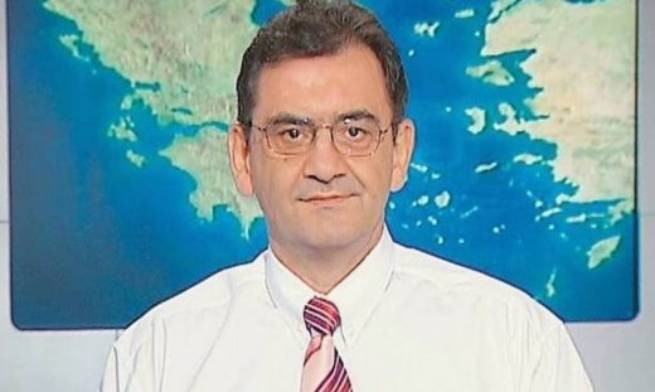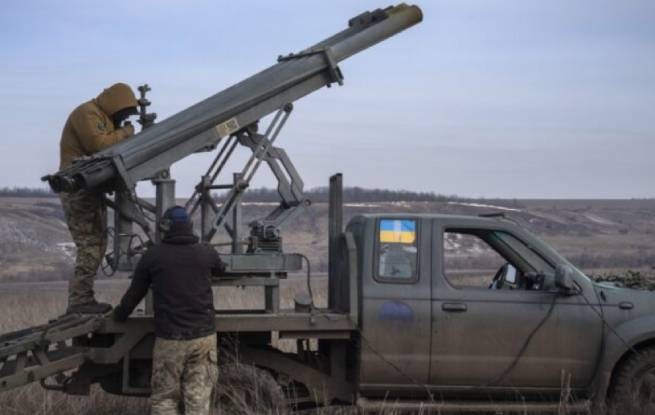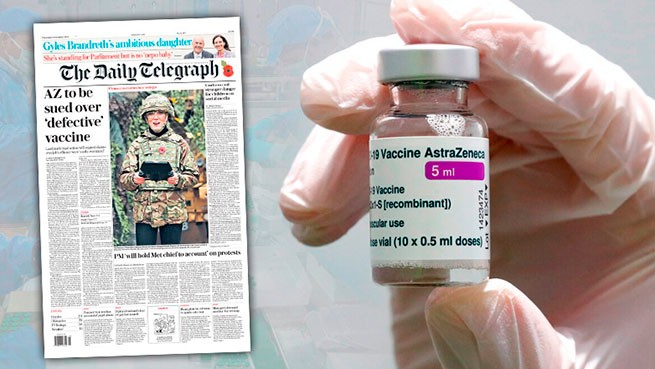‘Tsunami’ of claims expected in UK court system from citizens with irreversible damagecaused by the company’s drugs AstraΖeneca. – The Daily Telegraph reports on two lawsuits brought by patients who suffered immunothrombocytopenia.
Two lawsuits filed in the UK Supreme Court over side effects from the AstraZeneca vaccine are expected to open a Pandora’s box. According to The Daily Telegraph, the cases involved two people who developed immunothrombocytopenia shortly after vaccination – a 35-year-old mother of two who died, and a man who was left permanently disabled.
The two cases could pave the way for another 80 lawsuits seeking multimillion-dollar damages. The British government is also facing criticism for reassuring citizens that the vaccine is safe and questions about how it responded to early doubts about its effectiveness.
The vaccine is called defective
The Daily Telegraph article states the following: “AstraZeneca vaccine named defective in a landmark multimillion-dollar lawsuit that claims its effectiveness was “exaggerated.”
The High Court case against the pharmaceutical giant was brought by Jamie Scott, a father of two who suffered permanent brain damage as a result of a blood clot after receiving the vaccine in April 2021, leaving him unable to work. The second claim is brought by the widower with two young children of 35-year-old Alpa Taylor, who died after receiving the AstraZeneca vaccine.
The cases could pave the way for up to 80 claims worth around £80 million related to a condition known as “immunothrombocytopenia” caused by AstraZeneca’s (VITT) Covid-19 vaccine.
Independent studies showed that AstraZeneca’s vaccine was highly effective in fighting the pandemic and saved more than six million lives worldwide in its first year on the market. Last year, the World Health Organization said the vaccine was “safe and effective for all people aged 18 years and over” and side effects were “very rare.”
The vaccine, which was touted by Boris Johnson as a “triumph for British science”, is no longer being used in the UK. Instead, the government recommends three other vaccines for the autumn revaccination.
In the first months after the release of the AstraZeneca vaccine, scientists its potentially serious side effect has been identified. It has since been recommended that it should no longer be given to people under 40 in the UK. as the risk from the vaccine ended up being higher than from Covid.
AstraZeneca told the Daily Telegraph that patient safety is a priority “highest priority”that its vaccine is called Vaxzevria “has repeatedly demonstrated an acceptable safety profile” and that regulators around the world have “consistently stated that the benefits of vaccination outweigh the risks associated with extremely rare potential side effects.”
It is noted that AstraZeneca in its legal response denies that the vaccine caused irreparable harm to Mr Scott. At least 81 deaths in the UK are believed to be linked to the side effect, which caused blood clots in people with low platelet levels, according to official figures from the Medicines and Healthcare products Regulatory Agency (MHRA). According to the MHRA’s own figures, almost one in five people with the disease died as a result of taking the vaccine.
Government Negligence
Victims and their lawyers are challenging the government’s efforts to oversee vaccine marketing and note that while Germany suspended use of the vaccine in people under 60 at the end of March 2021 due to the risk of rare blood clots, Britain stopped giving it to people younger on April 7 It took 30 years and another month to ban the vaccine for people under 40.
Of the 148 compensation payments provided by the government for vaccine injuries under a scheme that provides compensation to those with problems from vaccines or relatives of people who have died, at least 144 payments went to people who received the AstraZeneca vaccine, officials said.
Many families have complained that the amount they received under the £120,000 compensation scheme is not enough, prompting them to take AstraZeneca to the High Court.
The lawsuit, brought by Mr Scott under the Consumer Protection Act 1987, alleges that the vaccine was defective because it was not as safe as people expected.
The case will raise questions about what UK authorities knew about concerns about the vaccine and how they dealt with them.
The Telegraph published a series of Whatsapp messages sent to and from then-Health Secretary Matt Hancock that showed US authorities were expressing concern. However, AstraZeneca never applied for a license in the United States. At the time, some European countries stopped making the vaccine due to concerns that it could cause blood clots in some people.
The lawsuit was filed by Mr. Scott after he nearly died after receiving the vaccine. Scott suffered a brain hemorrhage and doctors called his wife Kate three times to say goodbye.
Ms Scott said the couple were forced to sue AstraZeneca because the government compensation scheme and the £120,000 paid to her husband were insufficient. Mr Scott, who was 44 at the time of the vaccine, was forced to leave his job as a computer software developer.
Mrs Scott said: “We are quiet people but we cannot accept injustice. We have been lobbying the government for 18 months for fair compensation for health problems caused by the vaccine. The government told us the vaccine was safe and effective, but what happened Jamie changed our lives and the AstraZeneca vaccine was the reason.” Mrs Scott is also trying to raise money to pay for the lawsuit.
“AstraZeneca cannot continue to ignore cases where the vaccine has caused catastrophic injuries and losses,” Ms Scott said in a statement. “Our lawsuit will seek to hold AstraZeneca accountable, but we must create a strong battlefield to achieve justice.”
Up to 80 claimants could bring a class action to the High Court before the end of the year that threatens to undermine confidence in AstraZeneca and the vaccine it developed with Oxford University.
In Mr. Scott’s lawsuit, his lawyers allege that he suffered “injuries and consequential damages caused by thrombosis as a result of being vaccinated on April 23, 2021, with the AstraZeneca Covid-19 vaccine,” which the lawsuit alleges was defective. They also claim that a warning about the risks associated with the vaccine was not included in the product information on the date of delivery.
Inaccurate vaccine efficacy data provided by AstraZeneca
Following the clinical trials, AstraZeneca issued press releases saying the vaccine, known as Vaxeva, was 62% to 90% effective at preventing symptomatic Covid, depending on the dose, with an average of 70%. The lawsuit states: “In fact, the absolute risk reduction for Covid-19 prevention was only 1.2%.” Absolute risk reduction measures how much a vaccine reduces the baseline risk of contracting Covid at a given point in time. If Covid levels are low, the absolute risk reduction will be significantly lower.
This is different from relative risk reduction, which compares the number of vaccinated people who get sick with the number of people who don’t get the vaccine who get sick. In the case of AstraZeneca, one study found that the relative risk was reduced by about 70% on average.
AstraZeneca said it highlighted the higher number as indicating a reduction in relative risk because it did not change regardless of the spread of Covid at the time.
The lawyers argued that AstraZeneca’s press release about the vaccine’s effectiveness was “misleading because people… assumed that the efficacy rate was an absolute measure of risk (in this case, the published efficacy rate overstated the effectiveness of the vaccine).”
On the thorny issue of the vaccine’s effectiveness, the court papers build on a decision by the Prescription Medicines Monitoring Authority (PMCPA), which said last July that AstraZeneca violated the code by repeatedly using the word “safe.” In a press release issued in December 2020, the PMCPA also ruled that the company violated its code by failing to disclose the absolute risk reduction of taking the vaccine.
The ongoing trial will also examine the government’s role in reassuring the public after Mr Hancock approved compensation for AstraZeneca in the “very rare event that any adverse event occurred that could not have been foreseen as a result of the strict controls and procedures that were provided for.”
Lawyers say in the lawsuit that Mr. Hancock said: “The data obtained to date on this vaccine suggests that there will be no side effects and therefore no liability.”
The facts stated in the lawsuit state: “The government’s public statements about the safety of the vaccine must be weighed against the safety that the public had a right to expect from the AZ vaccine.”
Sarah Moore, a lawyer at law firm Hausfeld, which filed the lawsuit, said: “The group we represent has always been clear that they are not proponents of anti-vaccine conspiracy theories. However, given the experience of our clients, it is difficult to argue that vaccines do not bring benefits.” no harm done, is a blatant inaccuracy.”
Sir Jeremy Wright KC, the former attorney general, called on the government to intervene and settle the claims before they went to court, given that ministers had already received compensation for the side effects from AstraZeneca.
Sir Jeremy, who raised the case with Rishi Sunak against Mr Scott, who is also one of his constituents, said: “This is very, very strange. The government has not found a way to deal with these cases when the reason is clear.” Sir Jeremy added: “There is no recognition in government that this is an urgent problem.
The Prime Minister told me that he would find out more about this and would contact me. But that was a while ago – so long ago that I expected to see progress. The government should not wash its hands of it.” The second lawsuit was filed by Anish Portnoy, whose wife died in April 2021, just under a month after receiving the vaccine. An inquest in September 2021 found that she died from blood clots and brain hemorrhages caused by ” immune thrombosis and thrombocytopenia caused by the vaccine.”
Ms Taylor’s family is seeking up to £5 million in damages, according to the claim filed in the High Court. In a statement, AstraZeneca said: “We do not comment on ongoing litigation,” but added: “Regulatory authorities have clear and strict standards to ensure the safe use of all medicines, including vaccines. We express our condolences to everyone who has lost loved ones or reported problems with health.”
“Based on clinical trial data and real-world observations, Vaxeva has an acceptable safety profile, and regulators around the world have consistently stated that the benefits of vaccination outweigh the risks of extremely rare potential side effects.”
The company said the MHRA had given the vaccine “full marketing authorization… in the UK based on the safety and effectiveness profile of the vaccine”. The company said it had provided three billion doses of the vaccine in more than 180 countries and that an independent study found it had saved six million lives.
Sir John Bell, who was the government’s chief life sciences adviser and adviser to the joint committee on vaccination and immunization, said: “The risk from the AstraZeneca vaccine is akin to the risk from an asteroid. There is a risk of an asteroid collision, but it is not very great”.







More Stories
Greece lifts all protective measures against Covid-19
AstraZeneca admitted that its Covid-19 vaccine… kills
Shocking report from Japanese scientists: “Cancer deaths increase sharply after mass Covid vaccination”